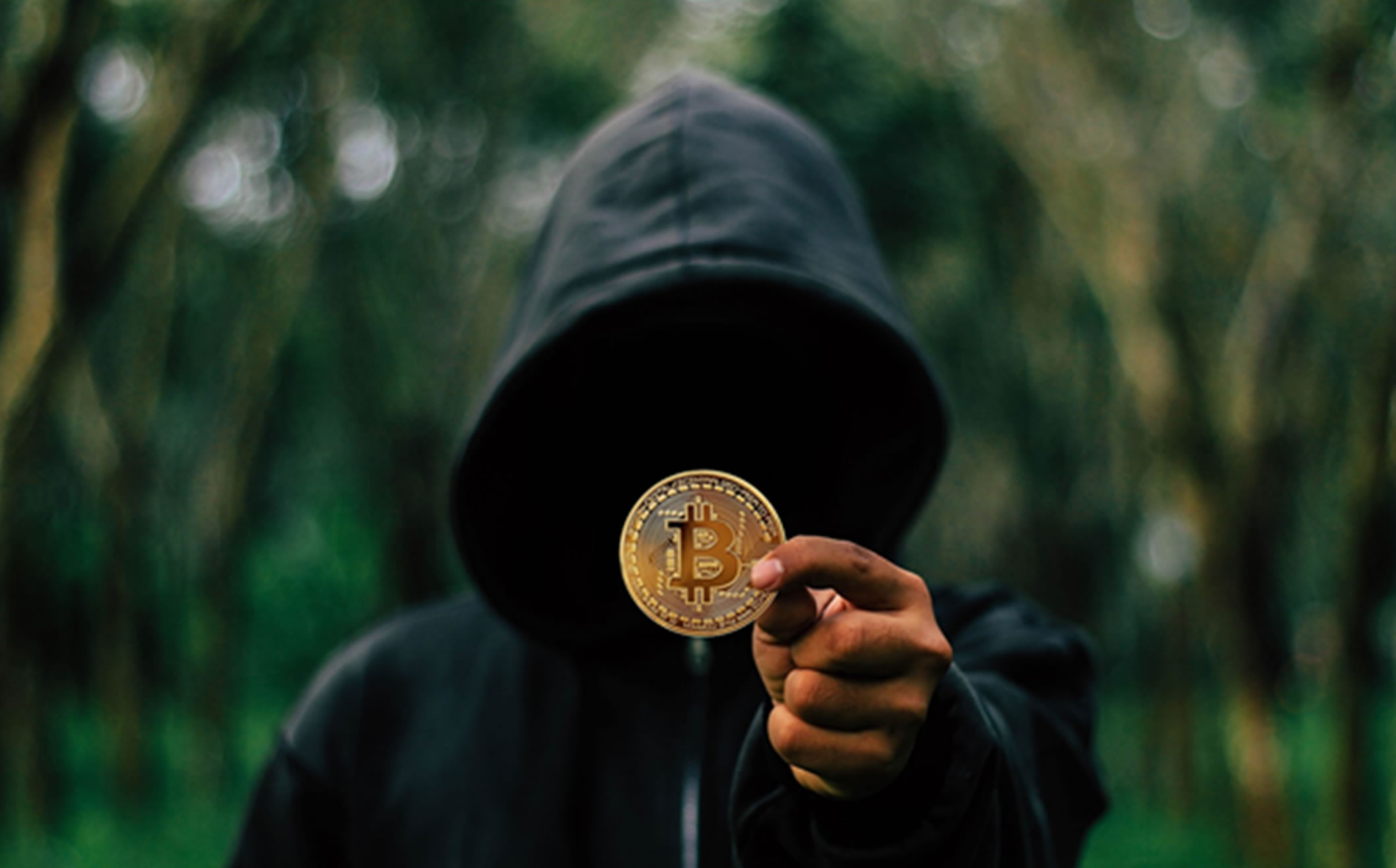Tuesday, March 29, 2022 / 09:35 PM / Op-Ed by Peter Arojojoye / Header Image Credit: Data Driven Investor
When a medium of exchange is generally accepted in society, it is called "money"- Jorg Guido Hulsmann
If you are active on social media, you must have seen statements like - 'Bitcoin rose today', 'Ethereum fell by 10%', 'doge to the moon', 'everywhere is red', But what do these 'statements' mean? All the above-quoted statements are phrases commonly used amongst cryptocurrency enthusiasts and investors in response to the never-ending rise and fall of cryptocurrencies, particularly bitcoin and altcoins.
Dogecoin, Bitcoin, Ethereum, and many others are all "cryptocurrencies", a concept that remains a mystery to many. A survey conducted by Cardify in 2021 among some Crypto investors showed that 33.5% of these participants do not know or, at best, partially understand the meaning of cryptocurrency. Another study conducted among 1,000 participants revealed that 98% of participants from Brazil, the United States, and Mexico do not understand the fundamentals of the concept of cryptocurrency.
Indeed, the rise of cryptocurrency is quite incomprehensible. The collective market capitalisation of the entire crypto market currently stands at nothing less than $1 trillion, with over 300 million people using digital currencies globally.
But what are these cryptocurrencies? What are the benefits of acquiring or using one? What is the future of cryptocurrency in Nigeria?
Cryptocurrency Explained
Cryptocurrency, in simple terms, means an electronic currency based on blockchain technology, a decentralised database that has a record of all the financial transactions carried out across a peer-to-peer network. In essence, blockchain technology enables people to move assets around without going through any central banking authority. For the most part, the system is "owned" and "operated" and "regulated" by all the users and not one principal body anywhere. Cryptocurrencies run on this blockchain technology, the first and most popular being Bitcoin. However, you should know that all other cryptocurrencies that are not bitcoins are called altcoins.
The National Security Agency named privacy, user identification, message integrity, and nonrepudiation as some of the other features of cryptocurrency. The history of the 'cryptocurrency' concept can be traced back to 1989 when David Chaum created cryptographic digital money, called 'ecash', which he implemented through software called Digicash. Chaum is regarded as one of the founders of cryptocurrency.
Satoshi's Legacy
In the year 2008, an individual or a group of persons (no one knows who, really) with the anonymous name, Satoshi Nakamoto, sent a message containing details of the peer-to-peer electronic cash system they had been working on. According to Satoshi in a white paper titled "Bitcoin: A Peer-to-Peer Electronic Cash System", Satoshi stated that they were working on "a purely peer-to-peer version of electronic cash" that "would allow online payments to be sent directly from one party to another without going through a financial institution". A year after this white paper was released, the Bitcoin software was launched, allowing people to mine the new digital coin.
Following the launch of the software, another landmark achievement in the history of financial services took place in 2010 when Laszlo Hanyecz decided to offer 10,000 Bitcoins to Papa John's Pizza in exchange for just two boxes of pizza. Well, that is the equivalent of over $350 million today. After the launch of bitcoin and its wide adoption, several cryptocurrencies started to emerge, namely Litecoin, Peercoin, Ethereum, XRP (Ripple). Today, thousands of cryptocurrencies exist, and several are being launched in rapid succession.
Cryptocurrency in Nigeria and Reasons for the High Rate of Adoption
Just as is the case in every other sovereign country, the primary medium for transactions in Nigeria is the fiat currency that the Central Bank of Nigeria (CBN) issues. However, it is not without its complications. Due to the crazy-high inflation in the economy, the Nigerian fiat currency, the naira, tends to lose its value quite fast. Also, conducting cross-border transactions with the currency can be daunting. One huge reason for this is over-regulation by the authorities. These and other factors have made the use of crypto utmostly attractive to tech-savvy Nigerians. Hence, a number of merchants and investors in Nigeria have looked towards cryptocurrency as the "new means of exchange, medium of saving value and unit of account".
According to a report published by Binance, a global cryptocurrency exchange company, Nigeria is the leading country in terms of cryptocurrency adoption across the world. A 2021 survey conducted by World Economic Forum in conjunction with Statista showed that 33% of respondents from Nigeria either own or use cryptocurrencies. In another report by Finder, the country's 24.2% adoption rate amongst survey participants places it on the list of countries with the largest number of cryptocurrency owners in the world. The report also showed that "1 in 4 (surveyed) online adults in Nigeria own some form of cryptocurrency", with Bitcoin and Ethereum being the top 2 cryptocurrencies owned by Nigerian citizens. These statistics only point to one fact: cryptocurrency adoption in Nigeria is high.
The reasons for this are not far-fetched. According to Chainalysis Research, in emerging economies like Nigeria, many residents turn to cryptocurrency "to preserve their savings in the face of currency devaluation, send and receive remittances, and carry out business transactions".
Outlook for Cryptocurrency in Nigeria
There will be a rise in the number of persons who own and use crypto assets in Nigeria as more people sign up on cryptocurrency platforms for trading and peer-to-peer payments. This is notwithstanding the ban imposed by the CBN and the apex bank's constant drumming roll of high risks attached to cryptocurrency. In fact, another research conducted by Chainalysis showed that between February 2021, when the CBN banned cryptocurrency, and March 2021, "the dollar volume of cryptocurrencies sent from Nigeria rose to $132 million, up 17% from the previous month". This depicts the level of 'social acceptance' of cryptocurrency for peer-to-peer payments (P2P) and remittances, a key factor behind the evolution of money.
The future of cryptocurrency in Nigeria will be driven by certain trends, which observers should look out for. They include:
Cryptocurrency as a Medium of Payments
Cryptocurrency may form the basis for most cross-border payments in Nigeria as it is a faster and less expensive solution to remittance challenges in Nigeria. With cryptocurrency, a trader in Nigeria can transfer money to their business partners in other countries within seconds instead of using the Society of Worldwide Interbank Financial Telecommunications (SWIFT), which is considered not user-friendly and suitable for business purposes. Using the SWIFT network comes with lengthy periods before the transaction is completed, and then the user has to grapple with exorbitant transaction costs. Hence, cryptocurrency may serve as a dominant means of cross-border payments in Nigeria in a few years' time.
Cryptocurrency as a Medium of Investment
Some adults in Nigeria now see cryptocurrency as a better means of preserving the value of their money. This is due to the consistent fall of the naira as a result of never-ending inflation. In an article published by Bloomberg on December 31, 2021, it was stated that the value of the naira had fallen consecutively for 9 years. Also, the naira has been devalued three times by the CBN since March 2020. Since the naira has continuously failed to be a good medium to store value, many Nigerians have turned to investing in cryptocurrencies which, even with its volatile nature, has made those who have proper knowledge of the encrypted digital currency into millionaires. According to Professor Joseph Grundfest, former Chairman of the United States Securities and Exchange Commission, cryptocurrency investment can make it easier for people residing in countries with weak currencies to make better returns on investment than buying treasury bills, stocks, and bonds.
Also, Initial Coin Offerings (ICOs), a blockchain-based means of raising funds through crypto, can serve as a good source of venture capital investment for SMEs and startups in Nigeria. ICOs are similar to the popular Initial Public Offering (IPO), which is a process in which companies list their shares on a stock exchange to raise funds from investors. To invest in companies through ICOs, investors will have to use cryptocurrencies in exchange for the security tokens offered by companies seeking investment.
Regulatory Agencies and Cryptocurrencies
One trend that is more than likely to influence the future of digital currencies in Nigeria and worldwide is governmental agencies' role. The Central Bank of Nigeria (CBN), The Federal Inland Revenue Service (FIRS), the Securities and Exchange Commission of Nigeria (SEC), and other regulatory agencies will likely come up with more policies to guide the activities of crypto owners. For the CBN, its interests will revolve around ensuring that all forms of money (including digital currencies) come under its control or, at worst, have a say in its use for transactions within the country.
Also, more conversations will be held among CBN officials, public policy analysts, and lawmakers on the best way to regulate cryptocurrency. It is expected that Nigeria will make laws and policies recognising the relevance of cryptocurrencies for specific business activities such as payments and investment. However, it is expected that the country's apex bank will put restrictions on the use of digital currency.
For the FIRS, which is tasked with generating revenue through taxes, the agency will be on the lookout for ways to capture as much income for the government from crypto dealings. It is expected that crypto assets will be classified as property which, upon sale, capital gains tax will be charged by the FIRS. Hence, accepting mined cryptocurrency, exchange of cryptocurrency for fiat money, cryptocurrency enabled payments, exchange of a digital currency such as Bitcoin for another digital currency transactions such as litecoin are all examples of transactions on which taxes will be imposed.
The SEC, the governmental agency in Nigeria that regulates investing activities, has taken steps in the past to show that it is interested in regulating cryptocurrency-related transactions. For example, the SEC's 'Statement On Digital Assets And Their Classification And Treatment' explains its position on how crypto assets might be treated when the ban placed by the CBN on banks from engaging in cryptocurrency-related transactions is lifted.
Furthermore, anti-graft agencies such as the Economic and Financial Crimes Commission and the Independent Corrupt Practices and Other Related Offences Commission are expected to deal more with cybercrimes committed using cryptocurrencies; sadly, one of the downsides of using cryptocurrencies.
Corporate Institutions' Backing of Cryptocurrency
Due to the high adoption rate of Cryptocurrencies in Nigeria, it is expected that in a few years from now, corporate bodies such as supermarkets, ride-hailing companies, online marketplaces, and many other corporations will accept cryptocurrencies as a form of payments for goods or services rendered.
Conclusion
In the words of Jorg Guido Hulsmann, "to be spontaneously adopted as a medium of exchange, a commodity must be desired for its non-monetary services (for its own sake) and be marketable, that is, it must be widely bought and sold." Interestingly, this is the situation in Nigeria, where many residents increasingly desire cryptocurrencies in Nigeria due to the numerous benefits associated with them. However, it should be noted that certain drawbacks come with the use of cryptocurrencies. Some of the drawbacks include the volatile nature of its prices, security risks, the energy used for mining cryptocurrencies and their environmental effects, and illicit financial activities committed with crypto assets.
Despite all these drawbacks, cryptocurrencies offer many of the benefits that many customers and businesses look for in a currency, thus, making it one of the means of exchange in Nigeria even without the government's support. These benefits and drawbacks will influence the evolution and application of cryptocurrencies in Nigeria in the coming years. Hence, the Nigerian government is admonished to rethink its current approach towards regulating cryptocurrencies and strategize how these digital assets can be used to impact the Nigerian economy positively.
Disclaimer
This article does not in any way represent financial advice to invest in cryptocurrencies and other investment opportunities. As such, the author does not accept any responsibility for using and trading cryptocurrencies. Therefore, it is important you make your findings and consult experts before investing in the cryptocurrency market.
About the Author
Peter Arojojoye is a research analyst with over 3 years experience in UX research, market research, business analysis and project management. He can be reached vide [email protected].
 Lagos, NG • GMT +1
Lagos, NG • GMT +1











 1046 views
1046 views











 Sponsored Ad
Sponsored Ad
 Advertise with Us
Advertise with Us









